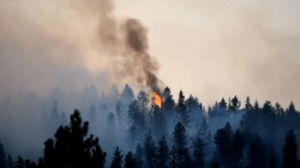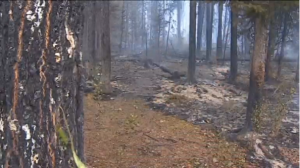
JULY 7 (Reuters) — Hundreds of wildfires have swept across the western Canadian provinces of British Columbia and Saskatchewan, where the Canadian military was called in to help fight the 112 active fires that have forced the evacuation of more than 13,000 people and threatened several remote towns on Monday (July 6).
The provincial government said more than 1,000 soldiers were on their way or already in the Prairie province, with some 600 to be trained as firefighters and on the front lines as early as Wednesday. The Canadian Armed Forces said up to 1,400 personnel could be deployed.
Hot dry weather has fueled an extreme fire season in Saskatchewan, with nine new fires starting in the past 24 hours, provincial fire center manager Scott Wasylenchuk said.
He said arson is also suspected as a cause of some of the fires.
As of Monday, there have been 574 fires in Saskatchewan this year, compared with 205 by this time last year. Wasylenchuk said 112 are still actively burning.
One of the biggest evacuations is around the town of La Ronge, roughly 600 km (370 miles) north of the provincial capital, Regina, where a fire is active just 3 km outside of the town, the provincial government said.
 About 5,000 of the evacuees will be housed in the town of Cold Lake in the neighboring province of Alberta, with the remainder being moved to shelters around Saskatchewan.
About 5,000 of the evacuees will be housed in the town of Cold Lake in the neighboring province of Alberta, with the remainder being moved to shelters around Saskatchewan.
Wildfires are also raging in the Pacific Coast province of British Columbia, blanketing Vancouver with smoke and haze. The province’s government said there are 180 fires burning, including 18 major fires. Eight communities are under evacuation order.
Helicopters and airplanes dropped fire retardant on the wildfires that have threatened communities across British Columbia.
The skies over Vancouver have been obscured by smoke and a water usage warning has reportedly been issued. Several communities around the coastal Canadian city have also issued evacuation warnings.







